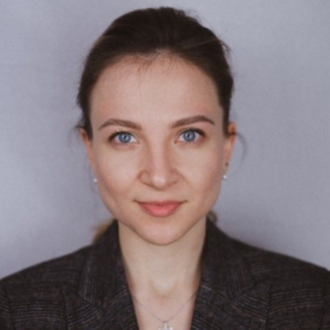Overview
Financial mathematics builds on the application of advanced concepts in modern probability theory to enable market professionals to tackle and systematically resolve a huge range of issues in the areas of pricing, hedging, risk management, and market regulation.
On this course you’ll put theory into practice by developing your numerical and computational skills to implement financial models. These are the skills you’ll need to work for a financial institution.
The course has an emphasis on:
- the modelling of the dynamics of financial assets, both in equity markets and in fixed-income markets
- the pricing and hedging of options and other derivatives
- the quantification and management of financial risk.
The course will give you a balanced mixture of advanced mathematics (including modern probability theory and stochastic calculus), modern finance theory (including models for derivatives, interest rates, foreign exchange, equities, commodities, and credit), and computational techniques.
The teaching team includes:
Dr Elena Boguslavskaya, Professor Paresh Date, Dr Jiawei Lim, Dr Cormac Lucas, Dr Ben Parker, Professor Simon Shaw, Professor Keming Yu.
You can explore our campus and facilities for yourself by taking our virtual tour.
Course content
To view module details please click on the Year 1 bar below.
We aim to teach the key ideas in financial asset pricing theory from a modern perspective, using concepts and methods such as pricing kernels, market information filtrations, and martingale techniques. At each stage of the course you’ll undertake a critical re-examination of the hypotheses implicit in any financial model, with a view to gaining a clear grasp of both its strengths and its limitations.
Compulsory
- Probability and Stochastics
This module aims to equip students with the basic measure-theoretic and probabilistic concepts and techniques needed for them to be able to apply the modern mathematical theory of finance, and to enable students to use methods of stochastic calculus based on Brownian motion in such a way that they are able to carry out the necessary mathematical manipulations and calculations required for use and critical assessment of the various financial models introduced in other modules of the programme.
- Financial Markets
This module aims to equip students with the basic concepts of financial markets, including market terminology and conventions, required for other modules of the programme, and to enable candidates to perform calculations to obtain solutions to basic portfolio optimisation problems using a range of models and techniques.
- Option Pricing Theory
This module aims to equip students with the notion of risk-neutral valuation and the relation between physical and risk-neutral probability measures in the Brownian context, and to enable students to price vanilla options and basic barrier options in the geometric Brownian motion model.
- Interest Rate Theory
This module aims to equip students with a basic familiarity with fixed-income securities markets and, in particular, with the structures of key financial products traded in such markets, and to enable candidates to value derivatives in a number of basic models for interest rates and discount bonds.
- Research Methods and Case Studies
The aims of this module are to develop students’ knowledge and critical awareness of a variety of research methods, to encourage students to develop critical thinking skills and transferable skills appropriate to their discipline, to enable students to develop an understanding of the current needs of industry and commerce, and to prepare students for their dissertation.
- Advanced Computational Statistics for Data Analytics
This module aims to introduce the students to a range of computational intensive statistical methods, to further develop their skills in correct interpretation and clear reporting of results, and to enable the students to create algorithms for regression models (parametric regression and nonparametric regression) to cope with massive data.
- Financial Mathematics Dissertation
The dissertation aims to enable students to develop a robust understanding of more advanced and practical issues in risk quantification or risk management, or other areas in financial engineering, and to enable students to stimulate independent learning and critical thinking, both as a means for studying the chosen project and for approaching other real-life applications.
- Quantitative Data Analysis and Visualisation
The aim of this module is to develop knowledge and skills of the quantitative data analysis methods that underpin data science. Content covers a practical understanding of core methods in data science application and research, such as bivariate and multivariate methods, regression and graphical models. A focus is also placed on learning to evaluate the strengths and weaknesses of methods alongside an understanding of how and when to use or combine methods.
Optional
- Time Series Forecasting and Risk Modelling
This module aims to equip students with the ability to employ different methods for modelling and forecasting time series data, in particular in the context of financial data and forecasting financial risk, and to enable students to apply a range of models and tools to make financial decisions such as risk assessment.
- Fundamentals of Machine Learning
This module aims to equip students with the knowledge and ability to use modern regression and classification methods with different types of data, to enable students to apply a range of models and tools to variable selection and model selection.
This course can be studied undefined undefined, starting in undefined.
Please note that all modules are subject to change.
Read more about the structure of postgraduate degrees at Brunel
Careers and your future
You’ll be qualified to pursue a job in a number of different areas of financial modelling and risk management in the financial services industry, with employment prospects in banks, asset management firms, hedge funds, pension funds, insurance and re-insurance companies, exchanges, corporate and sovereign treasuries, financial consultants, financial software developers, financial regulators, financial publishing houses, and companies specialising in the analysis and distribution of financial information and data. There is also a demand in financial institutions for well qualified mathematically literate graduates with higher degrees for positions in the trading, structuring and marketing of financial products.
UK entry requirements
- A 2:2 (or above) UK Honours degree, or equivalent internationally recognised qualification, in Mathematics.
Applications from candidates with degrees in Engineering, Economics, Mathematical Biology with Maths, Calculus and Algebra modules with B Grade or above in the modules overall.
Other qualifications with relevant work experience may also be considered.
EU and International entry requirements
If you require a Tier 4 visa to study in the UK, you must prove knowledge of the English language so that we can issue you a Certificate of Acceptance for Study (CAS). To do this, you will need an IELTS for UKVI or Trinity SELT test pass gained from a test centre approved by UK Visas and Immigration (UKVI) and on the Secure English Language Testing (SELT) list. This must have been taken and passed within two years from the date the CAS is made.
English language requirements
- IELTS: 6 (min 5.5 in all areas)
- Pearson: 59 (59 in all sub scores)
- BrunELT: 58% (min 55% in all areas)
- TOEFL: 77 (min R18, L17, S20, W17)
You can find out more about the qualifications we accept on our English Language Requirements page.
Should you wish to take a pre-sessional English course to improve your English prior to starting your degree course, you must sit the test at an approved SELT provider for the same reason. We offer our own BrunELT English test and have pre-sessional English language courses for students who do not meet requirements or who wish to improve their English. You can find out more information on English courses and test options through our Brunel Language Centre.
Please check our Admissions pages for more information on other factors we use to assess applicants. This information is for guidance only and each application is assessed on a case-by-case basis. Entry requirements are subject to review, and may change.
Fees and funding
2026/27 entry
UK
£14,435 full-time
International
£24,795 full-time
More information on any additional course-related costs.
Fees quoted are per year and are subject to an annual increase.
See our fees and funding page for full details of postgraduate scholarships available to Brunel applicants.
Scholarships and bursaries
Teaching and learning
Assessment and feedback
Assessment is by a combination of coursework, examination, and dissertation. Examinations are held in May. The MSc degree is awarded if you reach the necessary overall standard on the taught part of the course and submit a dissertation that is judged to be of the required standard. Specifically, to qualify for the MSc degree, you need to: (a) take examinations in eight modules including the four compulsory modules, (b) attain the minimum grade profile (or better) required for a master’s degree and (c) submit a dissertation of the required standard. However, if you don’t achieve these requirements, you may be eligible to be awarded the Postgraduate Diploma.
Read our guide on how to avoid plagiarism in your assessments at Brunel.



